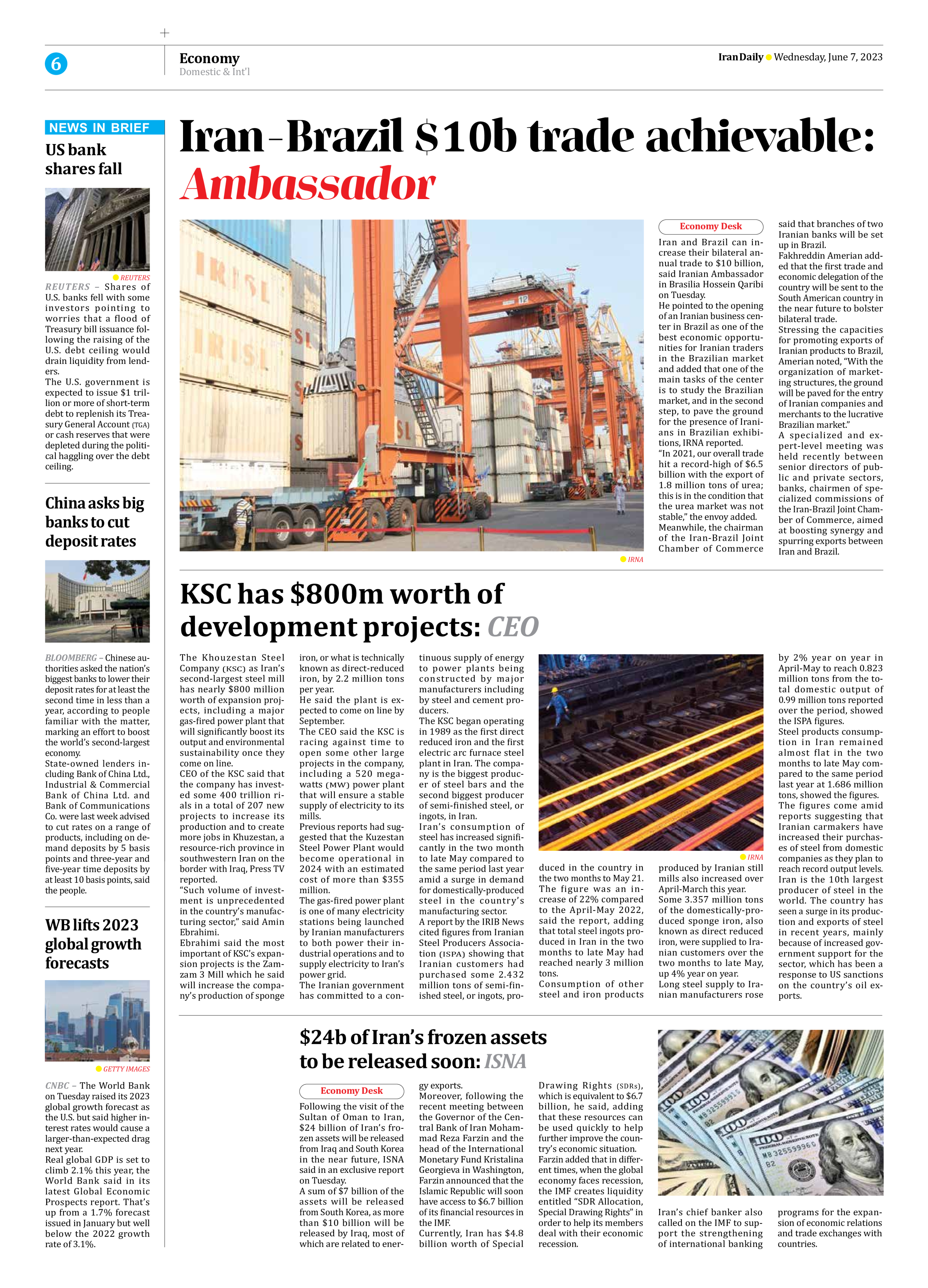
KSC has $800m worth of development projects: CEO
The Khouzestan Steel Company (KSC) as Iran’s second-largest steel mill has nearly $800 million worth of expansion projects, including a major gas-fired power plant that will significantly boost its output and environmental sustainability once they come on line.
CEO of the KSC said that the company has invested some 400 trillion rials in a total of 207 new projects to increase its production and to create more jobs in Khuzestan, a resource-rich province in southwestern Iran on the border with Iraq, Press TV reported.
“Such volume of investment is unprecedented in the country’s manufacturing sector,” said Amin Ebrahimi.
Ebrahimi said the most important of KSC’s expansion projects is the Zamzam 3 Mill which he said will increase the company’s production of sponge iron, or what is technically known as direct-reduced iron, by 2.2 million tons per year.
He said the plant is expected to come on line by September.
The CEO said the KSC is racing against time to open some other large projects in the company, including a 520 megawatts (MW) power plant that will ensure a stable supply of electricity to its mills.
Previous reports had suggested that the Kuzestan Steel Power Plant would become operational in 2024 with an estimated cost of more than $355 million.
The gas-fired power plant is one of many electricity stations being launched by Iranian manufacturers to both power their industrial operations and to supply electricity to Iran’s power grid.
The Iranian government has committed to a continuous supply of energy to power plants being constructed by major manufacturers including by steel and cement producers.
The KSC began operating in 1989 as the first direct reduced iron and the first electric arc furnace steel plant in Iran. The company is the biggest producer of steel bars and the second biggest producer of semi-finished steel, or ingots, in Iran.
Iran’s consumption of steel has increased significantly in the two month to late May compared to the same period last year amid a surge in demand for domestically-produced steel in the country’s manufacturing sector.
A report by the IRIB News cited figures from Iranian Steel Producers Association (ISPA) showing that Iranian customers had purchased some 2.432 million tons of semi-finished steel, or ingots, produced in the country in the two months to May 21.
The figure was an increase of 22% compared to the April-May 2022, said the report, adding that total steel ingots produced in Iran in the two months to late May had reached nearly 3 million tons.
Consumption of other steel and iron products produced by Iranian still mills also increased over April-March this year.
Some 3.357 million tons of the domestically-produced sponge iron, also known as direct reduced iron, were supplied to Iranian customers over the two months to late May, up 4% year on year.
Long steel supply to Iranian manufacturers rose by 2% year on year in April-May to reach 0.823 million tons from the total domestic output of 0.99 million tons reported over the period, showed the ISPA figures.
Steel products consumption in Iran remained almost flat in the two months to late May compared to the same period last year at 1.686 million tons, showed the figures.
The figures come amid reports suggesting that Iranian carmakers have increased their purchases of steel from domestic companies as they plan to reach record output levels.
Iran is the 10th largest producer of steel in the world. The country has seen a surge in its production and exports of steel in recent years, mainly because of increased government support for the sector, which has been a response to US sanctions on the country’s oil exports.







